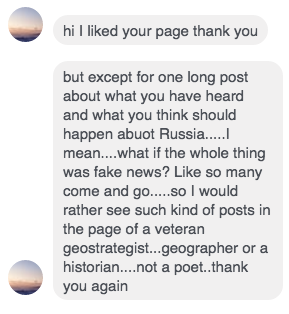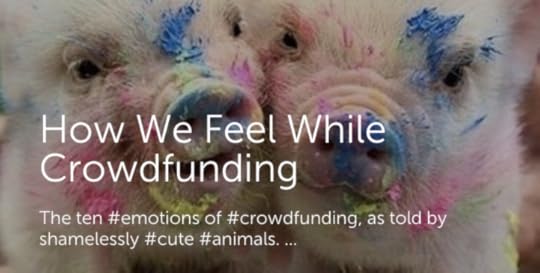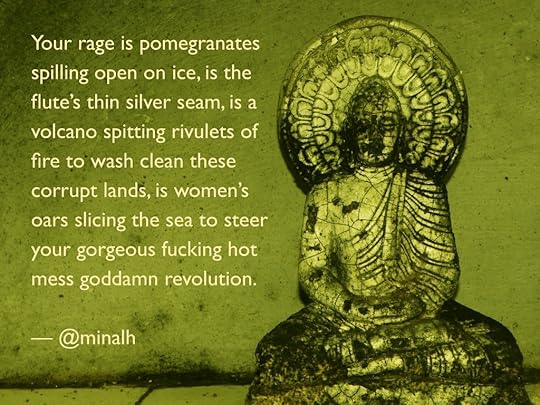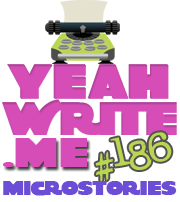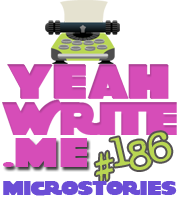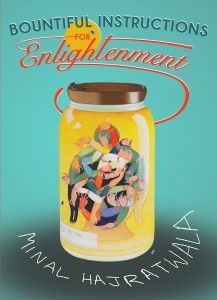Minal Hajratwala's Blog
December 14, 2020
Year-End Reading List
In March I joined Zócalo Public Square as an editor-at-large, and it’s been my privilege to commission many talented writers to share their thoughts with us during these strange times.
If you’re looking for great reads as you hibernate in these long nights, here’s a selection of essays that I can personally guarantee are awesome:
As we in the U.S. grappled with a bizarre election season, Sandip Roy and Elaine Elinson offered international perspectives on the fight for a fair vote.
Veterans Rashaad Thomas and Anuradha Bhagwati shared stories about how they’re coping in these times.
Seth Fischer lost his father to COVID and just weeks later, wrote a poignant tribute about being raised by a scientist whose work on child development influenced a whole field of psychology.
Eileen Tabios wrote about fleeing her home and losing her literary archive in California’s Glass Fire; she filed her essay via iPhone while evacuated.
Larry Blumenfeld riffed on how the jazz community is mourning deep losses and trying to keep the music going.
I love my scholar friends and am in awe of those who can translate their complex research into fascinating stories for the rest of us, like Thomas Conner on whether holograms can help us grieve and Koritha Mitchell on the Black ambition in Lorraine Hansberry’s most famous play.
I was deeply moved by personal essays by Kim Fellner on her family’s Holocaust history and M.L. Krishnan on her near-utopian adolescence in Chennai.
Two old Stanford pals (both Colorado-ans!) wrote about their amazing work: Tom Shepard on the LGBTQ asylum seekers caught up in U.S. immigration red tape, the subject of his acclaimed documentary UNSETTLED; and Adrian Miller on how barbecue came to be the favored dish of July 4 (grilled opossum, anyone?).
Way back at the onset of the pandemic, David Bowles invoked ancient Nahuatl rites for how rulers should respond to plagues (“don’t be a fool,” or the public has the right to behead you!), while Rinku Sen wrote about community activists embracing a broader vision of justice that includes food aid and direct services.
Writers around the world wrote for our “dispatches” series about the pandemic affecting them: editor and literary critic Otosirieze Obi-Young (Nigeria), my Clarion West classmate Eugenia Triantafyllou (Greece), and my Sundance Labs friend Sabina Anzuategui (Brazil) all contributed.
And in a staff favorite, Himanee Gupta-Carlson wrote about being both a farmer and professor: goats!

August 4, 2020
Wanted: Skilled Unicorns! We’re Hiring.
I have immediate openings for two roles. Please spread the word if you know any wondrous folks to help Write Like a Unicorn grow.
You might be right for these roles if you:
are excited by our core mission of supporting BIPOC authors (and allies who really mean it!) to finish books and to deliver our urgently needed stories and wisdom to the world.are deeply committed to anti-racism, freedom from state violence, LGBTQIAA rights, disability justice, confidentiality for our clients, and generally being a decent person in liberatory community with others.know yourself, your work habits, your needs, and your own best ways of giving and receiving communication and staying on task.want to be part of a small team where you, your ideas, and your skills are treated like the precious magic that they are.
Tech Operations Unicorn
Funnels. Automations. Launch sequences. CRMs. LMS. Landing pages. Auto-scheduler. Payment integration. Client portal.
If you know what these are, get excited at the idea of setting them up, and know the wizardry of how to make them work seamlessly for clients who aren’t technically inclined, please check out this job description.
Marketing Communications/
Social Media Unicorn
Do you know the magic of making the content of this page appear in WordPress, then re-constituting it to send it out via MailChimp, then sharing it across a whole bunch of social media platforms, WHILE making it look gorgeous, AND improving the writing, AND not introducing any typos, AND EVEN suggesting how else to share it for the best results?
If so, please check out this job description.
Thank you for sharing this post and helping us reach more unicorns!
May 10, 2019
Fiji Feast & Book Party!
7pm—9pm Saturday, May 18, 2019
Towne Center Books, 555 Main Street, Pleasanton, CA 94566
Fijian food, beverages, and wine will be served.

Dear friends, family, and readers,
It’s been a while since we gathered for a Big Bay Area Book Party! Please help me celebrate the birth of Moon Fiji — my travel guidebook to one of the most gorgeous places on earth.
It was a delight to meet so many amazing people in Fiji who are creating ecologically and culturally connected island adventures. I can’t wait to share their stories with you.
And my mum is cooking up a traditional Fijian feast (lovo! palusami!) so you know it’s going to be amazing.
RSVPs by Tuesday May 14 will help us plan—and get excited about seeing you.
Love,
Minal
P.S. Not in the Bay Area? We’ll miss you! But you can still celebrate with me virtually 
February 2, 2017
J is for juxtaposition: Rest in peace, Bharati Mukherjee
In 1989 when Bharati Mukherjee’s Jasmine came out, I was also coming out: a college sophomore already defining myself as a lesbian feminist; an Indian American defining myself as a writer who had never come across an Indian American book. The story of Jyoti escaping Indian patriarchy, passing through ever-more-liberating phases as Jassy, Jazzy, Jase, Jasmine, and finally Jane, resonated with me. I had attended elementary school in her Iowa; my young mother might have crossed paths with this mirror-image young woman, both of them wearing thick snowboots to the Woolworth’s and the grocer’s, where they would not have found the spices of home, not even fresh garlic. Plus, she had sex. An Indian girl! Sex! Nowhere else was this narrative visible, though so many of us were secretly living it; no one else was writing a brown female body moving through its lusts and hurts in white (so much more white than now) America. Soon afterward I had my ‘ethnic’ awakening and joined the chorus of campus critiques. Jasmine was a regressive narrative, one that would dominate Asian American fiction for several decades: oppressed Asian leaves home, finds freedom in America. A few sulky Asian American male writers also decried it from their this-is-why-we-can’t-get-laid position, refusing to acknowledge our communities’ patriarchies, and making a peacock-like display of their envy over the commercial success of such writers as Mukherjee, Maxine Hong Kingston, and ultimate literary world darling Amy Tan. The critiques had some valid and some not-valid aspects, but the debate had the unfortunate effect of lumping together authors who were actually quite different. By now we can see that Mukherjee was always much more intellectual than Amy Tan; her body of work shows a far broader range of characters and analysis. Most of her books grapple with the endlessly fascinating, still-unfolding epic of diaspora, but she resisted the simplistic and the banal. This complexity is evident even in Jasmine, her breakout book and perhaps still her most accessible one. It followed several novels and short stories that were more contained in scope, and in which Mukherjee tried out some of the ideas that populate the novel. Jasmine, which grew out of one of those short stories, touched me not only with its arc—which must be read, too, in the context of a feminist movement that was just surfacing the prevalence of sexual assault—but also with its sweep. It is an epic of shapeshifting, from Jyoti through Jassy, Jazzy, Jase, Jane, to Jasmine, unfolding a personality that, to paraphrase American Walt Whitman, contains multitudes. We see this ambitious scope from the first two words of the novel, “Lifetimes ago,” and open onto the village astrologer make a dire prediction. This exotic circumstance—banyan tree and buffalo feces and star-shaped wound all make their appearance on Page 1—became a trope of Indian and Indian American writing, so much so that I can hardly believe my own nonfiction book also begins with something like it, though by the time I wrote it, a dozen years and dozens of Indian American novels had intervened. Perhaps, duckling-like, I imprinted upon this first literary-mother? In both her book and mine, by story’s end, it is Destiny that must be overturned, in favor of a wild and wide-ranging free will: “Watch me re-position the stars,” says Jasmine on her last page. Mukherjee was a key figure in expanding the destiny of South Asian writing in the United States, a subgenre that has now bloomed far beyond those first narratives. Though many diverse genres, approaches, and characters now populate our collective literary corpus, it seems to me that Jasmine foretold much of it. We still have our assimilationist Janes and our sassy Jazzys and our traumatized Jases—all pushing, as if inevitably, toward our self-inventing Jasmines.
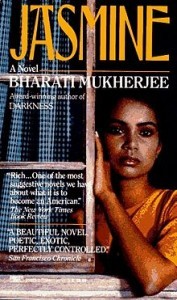
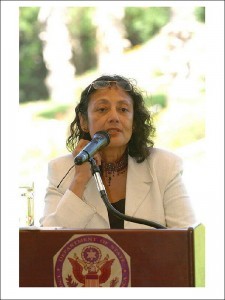
January 14, 2017
It feels as though the times have never been more urgent for our work
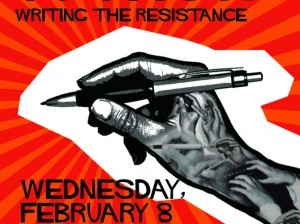
I want to write with you because our stories are the most vital tool we have for change.
Last year, I and some folks started something: a day of mini writing workshops, free and open to everyone, led by writers of color.
This year, as I drafted the invitations just days after the election, I found myself writing, It feels as though the times have never been more urgent for our work.
My secret agenda is always, of course, to invite the writers and collaborators from whom I most want to learn. I still draw sustenance from the vibrancy of last year’s teachings. So as we put together this year’s lineup, I’m thinking about what kind of writing guidance I most need—what all of us may need—in this peculiar, poised moment.
*

I stand on prosthetic legs to vote no!
Just before 1:30 a.m. last Thursday on the floor of the Senate, as the roll call went down to rob tens of millions of humans of affordable health care, Sen. Ladda Tammy Duckworth dissented with those words.
Her ancestors on her white father’s side fought in the Revolutionary War. Her ancestors on her mother’s side migrated generations ago from China to Thailand. She campaigned in a wheelchair made of titanium, with stars and stripes painted on her carbon-fibre limbs. She has been on food stamps and in war zones, and she is fighting on the floor of the Senate because she knows her story.
Love, yes; money, surely; faith, perhaps; but more than anything I think it is our stories that carry us: Into the streets and through the long organizing meetings and through the grind of everyday survival. Out to our workplaces and schools and institutions. Up in all the places where we do our healing, our fighting, our incredible striving to make the world better.
Our stories are that vision of “better.” They are the foundation for all of our actions.
I want to write with you to imagine, to dream, to create joy, to play; to incline us toward the world we need and to beat back the one we don’t.
So we will hold our write-a-thon again on Feb. 8, this time in Washington DC. The need is more urgent than ever. Please come, and spread the word: It’s FREE. It’s OPEN to everyone.
*
I am here today on behalf of rape and sexual assault survivors to urge you not to confirm.
I met Amita at her home recently, after a long interval of years, for (what else?) an activist organizing meeting. She was preparing for her testimony at the Senate hearings of an avowed bigot who is set to be installed to oversee justice for all. When she faced down the men running the hearing (the committee) (the country), she knew they had already shown, by their voting record, that they did not care about survivors. Our brave friend spoke out in order to bear witness: to stand on the right side of history, to resist. She connected the horror of her past with the horror of failed policy, and did it with elegant and authoritative ferocity because she has worked so very hard to know her story.
Our truths are engaged in mortal combat with other, more sinister stories. Our words are pathways to witnessing, to clarifying what is intolerable, what cannot be explained away or ignored or made better.
What do we see? What can we change and how? What cannot be reformed but must be rejected? Where must we refuse to cede ground? Who and what do we stand for?
I want to write with you because we are creatures of story, designed to explore these questions not only by sniff or instinct or silent contemplation, but also word by word. Voice by voice. One by one, but also together.
There are some who think we—mere poets, “creative” writers—must limit ourselves when we speak. That we ought to confine ourselves to certain perceived areas of expertise: syllables, perhaps, or the varieties of doves. That we should engage only in a certain tone, eschew too-direct words, write only that which will not offend the sensitivities of a certain audience. It is no accident that this is, usually, an audience of the ignorant or the dominant or both.
This is precisely the time when artists go to work. There is no time for despair, no place for self-pity, no need for silence, no room for fear. We speak, we write, we do language. That is how civilizations heal.
Toni Morrison knows.
Every resister, every dreamer confronting every fascist moment knows.
Every writer confronting the blank page knows.
Let’s take on the despair, the enforced silences, together. Let’s imagine—and write—the words we we most need to inspire us now.
I want to write with you in Washington, DC. If you meet me there on Feb. 8, three weeks after the inaugurapocalypse, I’m sure we will have something to say.
*
Writing the Resistance
12pm-5pm Feb. 8, 2017
Washington, DC
For details: https://www.facebook.com/events/165263113956008/
October 18, 2015
My offer for your crowdfunder
By offering in-kind donations, I’m happy to help friends and good causes raise money for creative projects. (This assumes that I know you, or that there’s some natural relationship between your crowdfunder and my work, or I’ve pointed you toward this page.)
Here are some examples of successful perks I’ve donated.
The reward levels vary widely depending on each campaign’s strategy, and whether my perk is bundled with other items:
Book
Suggested reward level: $10-$200
Value: $26
Signed copy of Minal Hajratwala’s Leaving India: My Family’s Journey from Five Villages to Five Continents, winner of four literary awards.
info: minalhajratwala.com/writer/leaving-india/
write like a unicorn coaching session
Suggested reward level: $100-$500
Value: $160
Ready to take your writing to the next level? Enjoy a one-hour private mentorship session with experienced author & coach Minal Hajratwala to work through your creative doubts and leap forward on your writing project. We can work on craft, process, book structure, storytelling, and more.
info: minalhajratwala.com/coach/private-coaching/
Mini Manuscript Massage
Suggested reward level: $150-$1000
Value: $300
Get one story or essay, or five poems or flash pieces (up to 20 total pages), critiqued by writer & coach Minal Hajratwala. Includes in-depth editorial letter/revision guide and a 30-minute follow-up coaching conversation.
info: minalhajratwala.com/coach/manuscript-massage/
write like a unicorn enrollment
Suggested reward level: $200-$1000
Value: varies
[I offer several types of courses throughout the year. If I have an active class about to start, I may be able to offer 1-2 slots in the class to your crowdfunder. Please see minalhajratwala.com/coach/courses for upcoming options.]
CUSTOM WRITING WORKSHOP
Suggested reward level: $500-$3000
Author & coach Minal Hajratwala will craft an exciting, dynamic three-hour creative workshop or master class for your group, university, conference, corporate team-building event, or other community. Workshops can be customized for up to 25 participants and can be virtual (online), or live in the San Francisco Bay Area, Los Angeles, or elsewhere with the addition of travel costs.
info: minalhajratwala.com/coach/
Caveats: I have a limited capacity, and obviously I’m also judicious about where I want my stuff to appear, so this is all subject to availability and the right fit. I usually can offer no more than 2 perks per campaign, and they almost always sell out. If we’re working together, I always tweet about your campaign at least 3 times.
To inquire about having me provide a perk for your campaign, please email me with a link to your campaign and the date you propose for the perk to go up (at least 1 week ahead of time).
(If you decide you want to take me up on this, there are no restrictions on how you word the items or what reward level you decide to offer them at, and you don’t have to link back to me or anything like that. The focus is on YOUR crowdfunder, and this is my donation to support your awesome work.)
My tips
Folks have been asking me for advice because about a year ago, my colleagues in The (Great) Indian Poetry Collective and I raised $12,000, thanks to the generosity of our communities—enough to build the infrastructure of our new press and publish three more books over the next year. Woohoo! So here’s what I know:
• It’s not about easy money.
Crowdfunding is SO MUCH WORK. If you’re fantasizing about throwing up a link and watching the money roll in, um … no.
Clear the decks as much as you can. Get as many hands to help as possible. Don’t expect to juggle other big projects at the same time.
Get ready to work your a** off.
• It’s not about being shy or modest.
You absolutely must be willing to contact everyone you can think of and ask them to spare a minute to look, share, and donate.
You must do 1:1 personal outreach. This includes private FB messages and emails, long-shot tweets to celebrities, and personal phone calls or meetings with people who could become major donors.
Feel weird about asking for money? Yes. Money is weird, right?
Do what you must to work through the feelings. Use your crowdfunder as an opportunity to learn about asking and receiving gracefully.
• It’s not about love.
Your BFF might not give. Some random friend of a high school classmate might become a major donor. A person whose politics are awesome might not put her money where her mouth is. A person you thought was a clueless jerk might surprise you with a chunk of change.
Don’t take it personally. Don’t read meaning into people’s actions. Ask everyone you can think of; try not to rule people out too soon; try not to hate on people who didn’t contribute.
Be grateful for what comes in, and let go of what doesn’t.
• It’s not about what you want.
It’s about your audience. How can you offer something they want? More diversity in publishing, a fantastic reward, a wonderful feeling, a better world?
We almost made this fatal mistake. We thought we’d written our appeal well; after all, we were three writers! But a few days after our crowdfunder went up, a good friend gave one of us excellent feedback.
She’d donated because she knew us, but she told us that, frankly, it sounded like a vanity project to publish our own books.
We were horrified. We had utterly failed to center our campaign around what we planned to do for the greater good.
Thanks to her honesty, we were able to rework our language to highlight our true goals: Publishing excellent unknown writers as an empowering poet-centered collective. Diversifying the range of literary voices published out of India. Creating access to mentorship and workshops for emerging poets from various backgrounds.
Donations picked up immediately. Our communities cared about these things, and responded.
• It’s not about doing it alone.
Collaborate: Donate to other people and share other campaigns generously. Share perks and incentives; our Facebook community loved the “book bundle” contest that we ran, with donations from many amazing poet friends. We had an amazing volunteer who met us once and decided to create social media memes/postcards for our campaign, and another amazing volunteer who shot our campaign video. Give what you can and accept what’s offered, and all the karma will someday bounce back to you.
• It’s not about location, location, location.
We had donors from South America and Europe, even though we founders are based in India and the U.S. The power of crowdfunding is that you can reach the whole world. Don’t be provincial. Make sure you have some perks at each level that people in distant places can also enjoy.
• It’s not about me!
Frankly, there are a LOT of better resources out there than my blog post. Google “crowdfunding tips.” Look within the guides of whichever platform you’re using. Browse some campaigns and analyze what makes you want to give. We learned so much from reading blogs in which other people generously analyzed their own crowdfunding strategies, successes, and failures.
Good luck to you! And check out my listicle featuring shamelessly cute animals on the emotional roller coaster that is your crowdfunder:
So I made this for you:
Want me to contribute to your crowdfunder?
Everyone’s crowdfunding these days, am I right? Maybe you, too?
So I made this slideshow for you: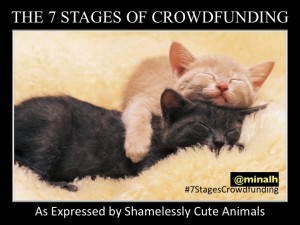
The 7 Stages of Crowdfunding As Expressed by Shamelessly Cute Animals
My offer for your crowdfunder
(This assumes that I know you, or that there’s some natural relationship between your crowdfunder and my work. Please read this whole section before emailing me about your crowdfunder!)
I regular donate coaching sessions and workshop slots to relevant crowdfunders.
I’m not wealthy, so my personal donations are usually quite limited. But by offering in-kind donations, I’m happy to help friends raise a lot more money for creative projects!
Successful perks I’ve donated include:
Book
Suggested reward level: $10 or other (if part of a book bundle)
Value: $26
Signed copy of Minal Hajratwala’s Leaving India: My Family’s Journey from Five Villages to Five Continents, winner of four literary awards.
info: minalhajratwala.com/writer/leaving-india/
Writing Mentorship
Suggested reward level: $100
Value: $160
Ready to take your writing to the next level? Enjoy a one-hour private mentorship session with experienced author & coach Minal Hajratwala to work through your creative doubts and leap forward on your writing project. We can work on craft, process, book structure, storytelling, and more.
info: minalhajratwala.com/coach/private-coaching/
Mini Manuscript Massage
Suggested reward level: $120
Value: $200
Get one story or essay, or five poems or flash pieces (up to 15 total pages), critiqued by writer & coach Minal Hajratwala. Includes in-depth editorial letter/revision guide and a 30-minute follow-up coaching conversation.
info: minalhajratwala.com/coach/manuscript-massage/
CUSTOM WRITING WORKSHOP
Suggested reward level: $500
Value: $1000
Author & coach Minal Hajratwala will craft an exciting, dynamic three-hour creative workshop or master class for your group, university, conference, corporate team-building event, or other community. Workshops can be customized for up to 25 participants and can be virtual (online), or live in the San Francisco Bay Area, Bangalore, or other areas (with the addition of travel costs).
info: minalhajratwala.com/coach/
write like a unicorn
Suggested reward level: varies
Value: varies
[I offer several types of courses throughout the year. If I have an active class about to start, I may be able to offer 1-2 slots in the class to your crowdfunder. Please see minalhajratwala.com/coach/courses for upcoming options.]
I have a limited capacity, and obviously I’m also judicious about where I want my stuff to appear, so this is all subject to availability and the right fit. I usually can offer no more than 2 perks per campaign, and they almost always sell out. If we’re working together, I always tweet about your campaign at least 3 times. To inquire about having me provide a perk for your campaign, please email me with a link to your campaign and the date you propose for the perk to go up (at least 1 week ahead of time).
My tips
Folks have been asking me for advice because about a year ago, my colleagues in The (Great) Indian Poetry Collective and I raised $12,000, thanks to the generosity of our communities—enough to build the infrastructure of our new press and publish three more books over the next year. Woohoo! So here’s what I know:
• It’s not about easy money.
Crowdfunding is SO MUCH WORK. If you’re fantasizing about throwing up a link and watching the money roll in, um … no.
Clear the decks as much as you can. Get as many hands to help as possible. Don’t expect to juggle other big projects at the same time.
Get ready to work your a** off.
• It’s not about being shy or modest.
You absolutely must be willing to contact everyone you can think of and ask them to spare a minute to look, share, and donate.
You must do 1:1 personal outreach. This includes private FB messages and emails, long-shot tweets to celebrities, and personal phone calls or meetings with people who could become major donors.
Feel weird about asking for money? Yes. Money is weird, right?
Do what you need to work through the feelings. Use your crowdfunder as an opportunity to learn about asking and receiving gracefully.
• It’s not about love.
Your BFF might not give. Some random friend of a high school classmate might become a major donor. A person whose politics are awesome might not put her money where her mouth is. A person you thought was a clueless jerk might surprise you with a chunk of change.
Don’t take it personally. Don’t read meaning into people’s actions. Ask everyone you can think of; try not to rule people out too soon.
Be grateful for what comes in, and let go of what doesn’t.
• It’s not about what you want.
It’s about your audience. How can you offer something they want? More diversity in publishing, a fantastic reward, a wonderful feeling, a better world?
We almost made this fatal mistake. We thought we’d written our appeal well; after all, we were three writers! But a few days after our crowdfunder went up, a good friend gave one of us excellent feedback.
She’d donated because she knew us, but she told us that, frankly, it sounded like a vanity project to publish our own books.
We were horrified. We had utterly failed to center our campaign around what we planned to do for the greater good.
Thanks to her honesty, we were able to rework our language to highlight our true goals: Publishing excellent unknown writers as an empowering poet-centered collective. Diversifying the range of literary voices published out of India. Creating access to mentorship and workshops for emerging poets from various backgrounds.
Donations picked up immediately. Our communities cared about these things, and responded.
• It’s not about doing it alone.
Collaborate: Donate to other people and share other campaigns generously. Share perks and incentives; our Facebook community loved the “book bundle” contest that we ran, with donations from many amazing poet friends. We had an amazing volunteer who met us once and decided to create social media memes/postcards for our campaign, and another amazing volunteer who shot our campaign video. Give what you can and accept what’s offered, and all the karma will someday bounce back to you.
• It’s not about location, location, location.
We had donors from South America and Europe, even though we founders are based in India and the U.S. The power of crowdfunding is that you can reach the whole world. Don’t be provincial. Make sure you have some perks at each level that people in distant places can also enjoy.
• It’s not about me!
Frankly, there are a LOT of better resources out there than my blog post. Google “crowdfunding tips.” Look within the guides of whichever platform you’re using. Browse some campaigns and analyze what makes you want to give. We learned so much from reading blogs in which other people generously analyzed their own crowdfunding strategies, successes, and failures.
Good luck to you! Don’t forget to check out these cuties who know all about crowdfunding:
The 7 Stages of Crowdfunding As Expressed by Shamelessly Cute Animals
August 22, 2015
Me, “Best Dressed”?
Photo by RKN Photography
A few notes on how my community helped create this book
So this is the closest I’m likely to get to a fashionista award. 
“The Wardrobe,” a very fine literary journal, chose me as their featured poet last week — which they call the “best dressed.” Get it? Wardrobe? Best Dressed? OK!
Every day for a week, they chose a poem from my book Bountiful Instructions for Enlightenment.
It was fun and surprising to see their choices, and made me reflect on how each poem developed. I realized how community has played a HUGE role in the development of my work. I’m an auto-didact as a poet — no M.F.A., no formal course of study. I never even took a creative writing class in college.
So everything I’ve learned has been from knowing and reading other poets, and in short-term community workshops. I’m so grateful for those spaces.
Here are the behind-the-scenes stories of the five poems:
Her Discourse on the Leaf
Back in the 1990s I was a copy editor at a newspaper. One weekend I took a furlough to feed my creative side through a UC-Santa Cruz extension course with the brilliant, underrated writer Kate Braverman. Kate was a brilliant and original fiction writer who never received the acclaim she deserved, and was endlessly bitter because she knew it. All Saturday she held forth on various techniques and strategies and passionately stated ideas about writing. During a break, she collected the giant leaves that had fallen all over campus and gave us each one leaf, with instructions to come back on Sunday with a piece.
In a cheap motel room I poured my fury, shame, and bucketloads of tears—for her? for myself? for our country at that moment?—into that leaf.
I also met Gerald Fleming in that workshop, and he published an early version of this piece in his literary journal Barnabe Mountain Review, helping me to edit and clarify the language.
Minstrelry
This poem is about how it sometimes feels to be an Asian American woman writer, expected to write to stereotypes. I was lucky enough to be part of an Asian American queer women’s writing group at one time, which lasted long enough for us to meet several times before the co-organizers broke up. I can’t remember exactly, but I suspect this poem emerged from my time in that lovely little community.
The Goddess of Lemons
This poem started out as a fake translation. I wrote it in a tiny four-person workshop a million years ago in New York City, taught by Jeet Thayil at the Asian American Writers’ Workshop. We read the poem in Italian, then wrote our own “translation.”
I was in my 20s and learning like a sponge, and I distinctly remember Jeet’s kind words about it at the time; he told me it was not far from the spirit of the original. (Teachers: A little kindness can have such a big footprint!)
I kept working on the poem over the years, and when I was putting together Bountiful Instructions for Enlightenment, I found that it fit in perfectly with other the goddess and mythology poems in the book.
Archaeologies of the Present: The Professionals
I’m always totally surprised when people are interested in these poems, which are long and experimental and, to me, totally weird. I wrote the “Archaeologies of the Present” sequence at the turn of the millennium, 1999-2000.
At the time, the writer Lisa Margonelli were in a fellowship program together at the Sundance Institute. It was Lisa who gave me the spark about the pastry chefs using blowtorches, which appears in this poem — a new development in the San Francisco gourmand scene in 1999.
Archaeologies of the Present: The Hungry
And finally, another flashback to 2000. This piece refers most obviously to the weirdness that is/was the 4th of July, and also to a surreal cartoon movie “Chicken Run” (2000) which I for some reason saw, starring Mel Gibson’s voice.
What can I say, millennials? You really were born at a strange time in America.
Get the book now!
Bountiful Instructions for Enlightenment has been called “electric,” “stunning,” and “fresh” by much finer writers than I. Here’s how you can grab your copy:
In the US/worldwide:
Send $16.99 via PayPal.com to indianpoetrycollective@gmail.com (includes shipping).
Or buy on Amazon:
In India:
Email indianpoetrycollective@gmail.com for bank transfer details. The local price is only 350 rupees, and funds go to directly to The (Great) Indian Poetry Collective to publish new poetic voices from India.
January 5, 2015
What to Do When You Get a Nibble, Part 2
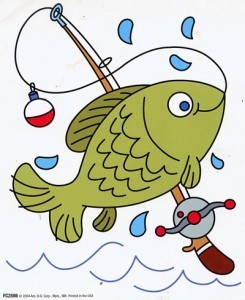
So you’ve got a “nibble” from a publisher! Hooray! You’ve done your happy dance and freaked out to your friends — now what?
Here are some questions you might ask the editor. This assumes she or he has seen your book or proposal and is seriously interested.
(Missed Part 1 of my What To Do When You Get a Nibble series? Check it out: 10 Questions To Ask a Literary Agent.)
6 Questions to Ask an Acquisitions Editor
Three about the editing process:
1. How much do you typically work with authors? What is your editing approach or style? Would you say that you’re more hands-on vs. laissez faire?
2. Would you be the actual editor, or do you typically pass projects on to a junior editor? If the latter, could I have a conversation with the person who would actually be editing my book?
3. (If you’ve submitted a partial manuscript, or if it’s a two-book contract:) What is the deadline and process completing the book? Would you expect me to be in touch with drafts along the way, or would you prefer that I deliver a finished product?
About the business end:
4. What kind of print run would you foresee for this book? Are we talking about hardcover, paperback, e-books?
5. What kind of marketing do you typically do for a book like this? Do you envision a book tour? What media outreach would you handle? What part of the publicity and marketing would be my responsibility?
6. (If your book has international angles) Are you interested in rights for this region only, or worldwide? If worldwide, what kind of marketing and distribution do you have in other countries? Where are your biggest foreign sales?
No publisher yet? There are many good resources on agents, publishing, and how to do your own market research out there. Poets & Writers magazine publishes a fantastic Guide to Literary Agents that tells you everything about the process of getting an agent who can submit your work to publishing houses.
Want help? I love helping authors bring manuscripts and book proposals to completion through private mentoring, where we can work on your project at your own pace. Or check out my Creative Art of Proposals e-course, which gives you the complete methodology I’ve successfully used for decades to hone glorious, persuasive query and proposal language.
November 5, 2014
What the Stone Buddha Said
“Your rage is pomegranates spilling open on ice, is the flute’s thin silver seam, is a volcano spitting rivulets of fire to wash clean these corrupt lands, is women’s oars slicing the sea to steer your gorgeous fucking hot mess goddamn revolution.”

